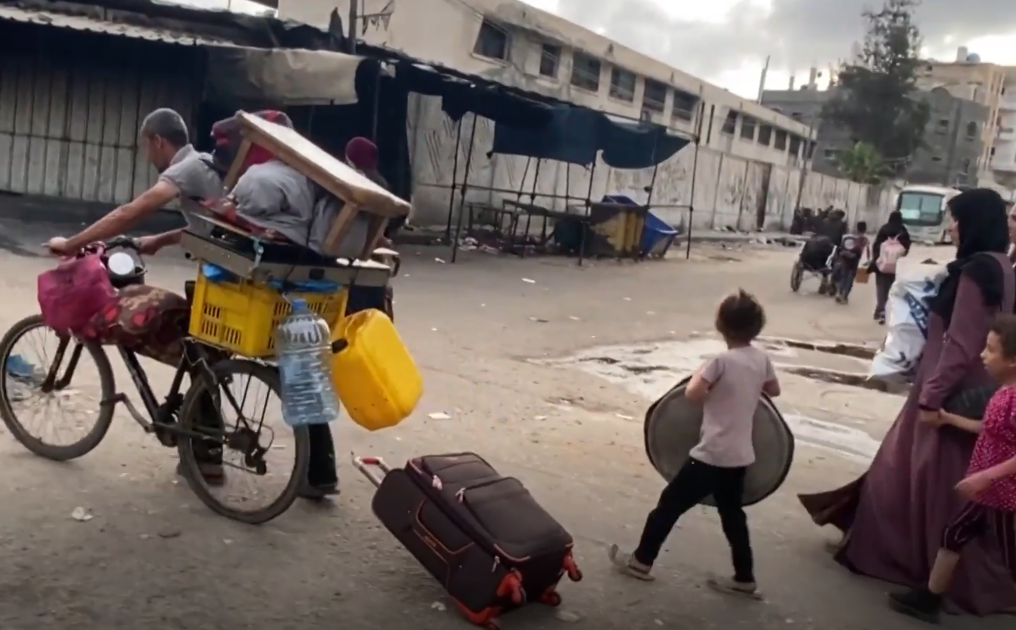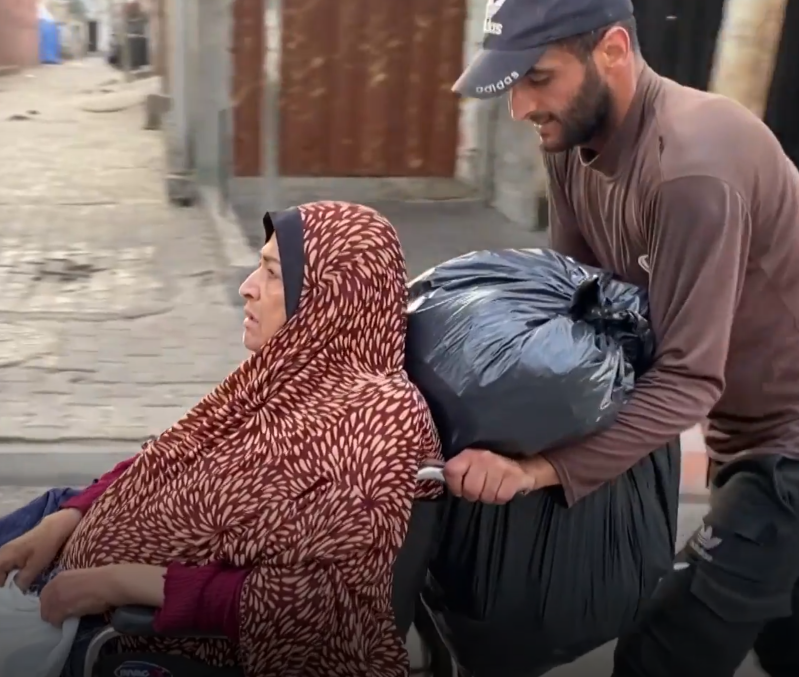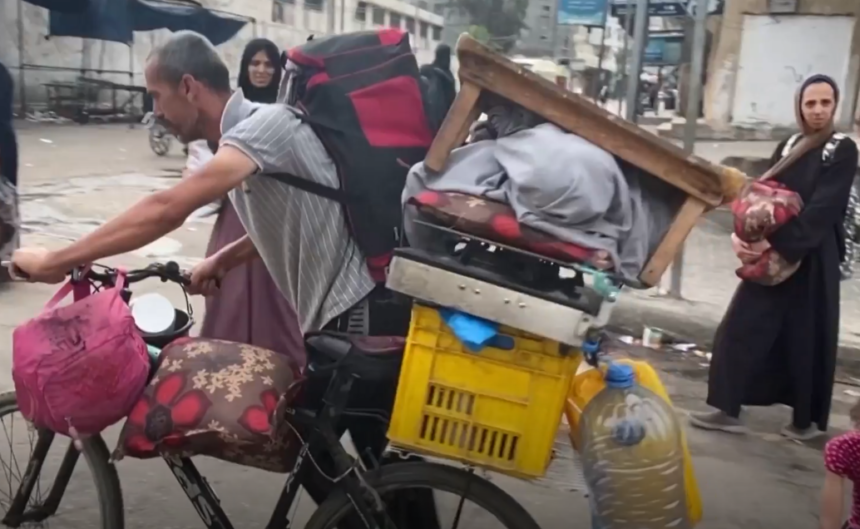As Palestinians who have been displaced look for safety, Israel advances into Rafah.

The Israeli military has increased its operations in the southern region, with a specific focus on the city of Rafah, leading to an intensification of the confrontation in the Gaza Strip. Palestinians who are internally displaced are frantically looking for protection amid the rising hostility and violence.
Enhanced Military Actions
The Israeli military has increased the number of combat personnel it has stationed in Rafah, strengthening its position in the southern Gaza Strip. This decision is made in spite of growing international calls for an end to the hostilities and a truce. The military’s ground offensive in the region is still going strong despite growing international indignation.
Deadly Airstrikes
Over the weekend, an Israeli airstrike in Rafah claimed the lives of numerous Palestinians. Despite the terrible deaths of dozens fleeing Palestinians seeking protection, the IDF insisted that the strike was meant to target a Hamas compound. Despite referring to the incident as a “tragic accident,” Prime Minister Benjamin Netanyahu was unable to appease the international community’s demands for accountability and an end to the killing. On Tuesday, there were multiple injuries and at least 21 fatalities from another airstrike that occurred in nearby Al-Mawasi. Although the area has been designated as a humanitarian safe zone by Israel, the attack took place directly outside of it.
Humanitarian Emergency
According to Dr. Mohammed Al Moghayer of the Palestinian Civil Defense, tents housing displaced people were struck by strikes in Al-Mawasi. A tumultuous scene featuring women and children amid the destruction was captured on verified camera. Although the location was confirmed, the New York Times was unable to promptly ascertain whether the damage was caused by an Israeli airstrike. The number of individuals fleeing Rafah due to the ongoing assaults is estimated to be one million, indicating the severity of the humanitarian catastrophe.

Global Response
The growing violence has drawn serious alarm from the international community. Vice President of the United States Kamala Harris called the Sunday airstrike’s aftermath “beyond tragic.” The U.S. State Department has suggested that there may have been a Hamas munitions depot nearby and has requested Israel for more information about the strike. Like in Khan Younis and Gaza City, the United States has stated that it does not want to see large-scale military operations in Rafah.
A detailed probe into the Rafah strike was also demanded by British Foreign Secretary David Cameron, who cited the extremely upsetting images of burnt corpses. China, meanwhile, has denounced Israel’s conduct and called for respect for international law as well as the International Court of Justice’s directive to end the military assault on Rafah.
The Position of the Israeli Military
In remarks to the media, Israeli military Rear Adm. Daniel Hagari said that an inquiry is being conducted to find out what caused the fire at the Rafah camp. He speculated that the fire may have been caused by weapons kept nearby. Hagari stressed that military actions against Hamas militants who had recently fired rockets into Tel Aviv will go on notwithstanding the probe.
Below the Surface in Rafah
Rafah residents say they had been subjected to heavy bombardment. A resident named Nedal Kuhail told of a terrifying night filled with explosions and terror that forced him and his family to escape. Fearful of the unrelenting violence, he thought that most residents in his neighborhood had left as well. Amidst the sounds of gunfire and explosions, Reuters was able to record images of the enormous evacuation from Rafah, with people departing on foot or in carts.
Since then, Kuhail and his family have moved into an abandoned warehouse in the Deir al-Balah neighborhood of central Gaza. He was thankful to have found a place to stay, even though it lacked basic amenities—a sentiment that many people in equally dire circumstances shared.
There are still military operations going on in Rafah and the larger Gaza Strip, which is making the humanitarian situation worse. The road to peace is still unclear, despite the calls of the international community for an end to the violence and a settlement to the war.



Leave a Reply